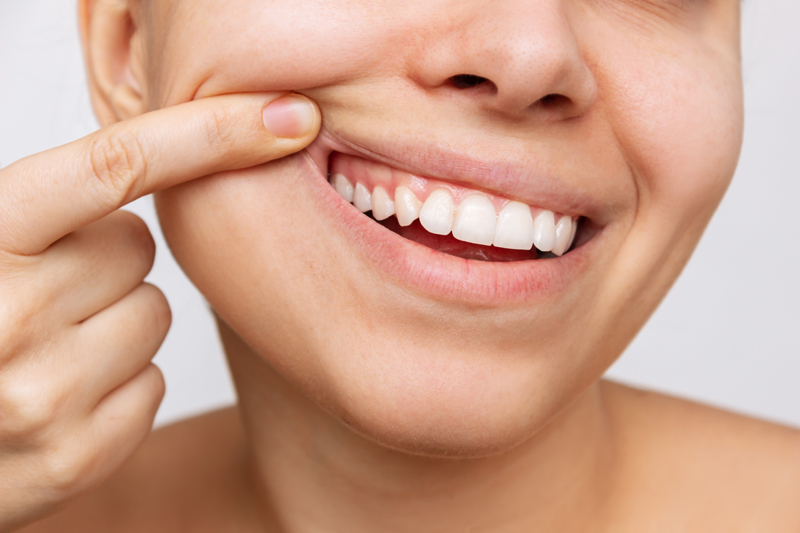You may have heard other people talk about gingivitis or periodontitis in Oshawa and have wondered if they are the same or different. Both affect your gum health but represent different gum disease stages. Gum disease is an infection caused by bacteria found in dental plaque.
What Is Gingivitis?
Gingivitis in Whitby is the early stage of gum disease. Ideally, if you develop gum disease, we can catch it at this stage, which is easy to treat.
Symptoms of gingivitis include:
- Swollen gums.
- Red or discoloured gums.
- Gums that bleed when you brush or floss.
- The beginnings of gum recession.
- Bad breath.
All these symptoms are quite mild and easy to ignore or miss. If you notice your gums have started to bleed during brushing or flossing, please make an appointment to come and see us at Margolian Dentistry.
Healthy gums shouldn’t bleed. Although you can develop bleeding gums if you brush your teeth too vigorously, you likely have the first signs of gingivitis.
How Is Gingivitis Treated?
Mild periodontitis can be treated as easily by professionally cleaning your teeth. Getting rid of plaque and tartar (calculus) buildup removes the bacteria causing inflammation and infection. Once your teeth and gums are clean, they can heal more easily.
Treatment also needs to be combined with excellent oral hygiene at home. Our hygienists can work with you to ensure you are using the right toothbrushing and flossing techniques and can offer helpful and practical advice. We may advise using an antimicrobial mouthwash to help control harmful bacteria.
What Is Periodontitis?
Periodontitis is an advanced form of gum disease in Ajax. It develops if you don’t get treatment for gingivitis. At this stage, the bacteria infecting and inflaming your gums have penetrated other tissues surrounding your teeth, including your jawbone and ligaments. These bacteria can destroy these structures. Without treatment, there is a high risk of tooth loss, and you may require other procedures to control this condition.
Symptoms of periodontitis include:
- Extensive gum recession causes your gums to pull away from your teeth, creating pockets.
- Changes to your bite.
- Discomfort or pain while eating.
- Persistent bad breath or a nasty taste.
- Pus around your gums.
- Loose teeth.
By this stage, you have almost certainly noticed some symptoms and if you haven’t already, schedule an appointment to see us immediately. Periodontitis is a serious problem, and seeking help sooner can help avoid further damage to your dental health.
It’s also worth remembering that periodontitis affects overall health. Once your gums bleed, bacteria can enter your bloodstream and travel to other sites in your body. Periodontitis is associated with serious health problems, including cardiovascular disease, diabetes, and respiratory illnesses.
How Is Periodontitis Treated?
Periodontitis is trickier to treat. One common treatment is scaling and root planing, similar to an ordinary hygiene appointment but providing a significantly deeper clean.
In addition to cleaning your teeth, a scaling and root planing treatment also cleans exposed tooth roots. After cleaning, these tooth roots are smoothed or planed. A smoother surface makes it easier for your gums to reattach and helps promote gum healing. We may prescribe antibiotics when an infection is severe.
If you have advanced periodontitis, surgical treatment may be needed to remove gum tissue that is too badly damaged to heal. Other procedures recommended may include bone grafting and tissue regeneration. Ongoing maintenance may be needed to control this condition as it can become chronic.
Have You Seen Blood on Your Toothbrush? Come and See Us
If you notice your gums have begun to bleed, schedule an appointment to see our dentist in Courtice. The sooner you receive treatment, the more quickly we can restore gum health.


